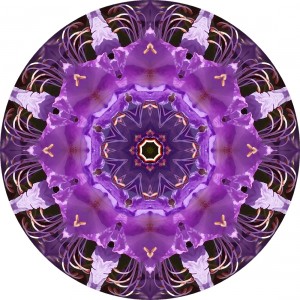A New View of Psychology

by Christine Kaine
Has Psychology really solved the riddle of the human being, or do we need a new view to fully understand who we are? The so-called science of mental life which we know as Psychology has become one of the most popular subjects of study today. The study of Psychology is said to have developed from the work of two key people on opposites sides of the globe, Wilhelm Wundt and William James, who, in their study of medicine, turned their attention to the effect of the mind on the body and vice versa. This happened relatively recently, in the middle of the Nineteenth Century .
Since then many famous Psychologists have had a powerful influence in and on our society by devoting themselves to revealing to us who we really are. Psychology is now an accepted part of modern life and anyone can make statements about the psychological makeup of human beings; politicians do it, journalists do it, even astrologers do it. How well they do it is open to investigation and interpretation.
At the core of our interest in Psychology is our own personal need to understand ourselves and to know ourselves more intimately. While this suggests that we look within, in actual fact the only way we can know ourselves more fully is to look outside into the world around us. The reason for this is so that we can see the results of what we do; the impact our actions. It is through these actions that we come to know ourselves – in all our achievements, and in all our failures.
As we look outside ourselves one of the first questions that arises is, “Does this world make sense?” when really we should be saying, “Look what I have created”. There is a forest of questions in connection with this. Questions like: Is the climate changing or are we damaging the earth that we depend on for our life? And who can we hold responsible for fixing that? What about the behaviour of our fellow human beings? Why are human beings damaging each other? Why are so many adults damaging children’s lives? What has changed to cause human beings to feel free to express their anger violently whenever they are displeased? What ever happened to being polite, respectful and caring? We will each have our own set of questions along these lines.
Perhaps we can find some answers by taking a new view of human consciousness. If we could step back in time, even fifty years, we would notice that the human mind was different then. The BBC show “Life on Mars” gives us a good idea of this difference. In this show a policeman is run over, admitted to hospital in a coma and when he wakes up he resumes his job at the same police station but 30 years earlier and now he is working for the predecessor of his current boss. We can experience a similar thing when we visit a small, isolated country town where the changes in modern society seem to have passed it by. We can accept that technology has had an effect on our changed consciousness, especially over the last one hundred years when we have had the use of radios, telephones, motor vehicles, aeroplanes and more recently computers and the internet. Then we could ask: Have they changed us or have we changed enabling us to create them?
We could look a lot further back to so-called Stone Age man remembering what we have been taught about the life and mind of those ancient people. Did they really grunt at each other, live in caves and spend all day hunting and cooking? It is an impoverished image if we compare it to our modern lives. Perhaps we need a new view of the way they were too.
I have spent a lot of time studying the work of the Austrian Philosopher Dr Rudolf Steiner whose initiatives are found today in Steiner Education, Biodynamic Agriculture, Economics, Anthroposophical Medicine, the Arts and Architecture, among others. His ideas about involution and evolution lie at the core of his work. This means that something must fall or fade before it can rise again, like the life of a seed. He often used Goethe’s notion of the archetypal plant to describe his way of developing ideas; from the seed come the roots, the shoots, the leaves which change colour to form the blossom which then dies and forms a new seed. We can identify this sevenfold system in many of the processes in the world and in human development.
For Steiner this sevenfold system was a key to understanding human nature and he identified how the cycle from seed to flower and back to seed actually happens in the development of human consciousness also. When he looked at Aristotle’s descriptions of the sevenfold human being he realised that Aristotle was documenting a change that he was observing.
Just as we can look back to the sketches of Leonardo Da Vinci to find flying machines, so Steiner looked back and identified the first sketches of the human soul which arose at the time of Aristotle. Steiner realised that Aristotle had outlined the makeup of the human being because Aristotle was reporting on his observation of the changes of human consciousness.
This change occurred when the experience of the human senses became elevated to finer human feelings; here was a blossoming to produce the seed for the development of the next higher human faculty, which is thought. Steiner also saw that the Renaissance marked a fulfilment of the development of thinking which produced a seed for the conscious use of our will, of our ability to act in a higher way. This acting in a higher way is what we are working on now.
Steiner recognised the seven facets of the human being in the Greek expressions that Aristotle used: treptikon for the life-force within the human physical body, and aisthetikon for human mobility, emotion and use of the senses. These are the three levels of our physical expression in the world. Then Aristotle described the human soul as having three parts orektikon, kinetikon, and dianoetikon which Steiner equated to the faculties of feeling, thinking and acting; these he identified as the core functions in the human soul. The way we express them identifies our character and personality. Are we a feeling person, a thoughtful person or a wilful person? Or do we balance all three? Do we allow one to fade to make way for the other, and do we add some feeling to our thinking to warm it up, or thinking to our feeling to cool it down? This brings us to the topic of this article because the word psychology literally means soul–science.
Apart from the soul there is a seventh aspect which is the part of us that we mean when we say “I”. I think, I feel, I act, points to a guiding principle in our soul. We could compare this “I” to the artist whose painting (our soul) is put on canvas (our body). In a similar fashion, the “I” could be the gardener who works in the garden which represents our soul and the soil represents our body. How aware are we of this “I” in our daily life? It’s task is to direct all our activity in life and influence all the transactions that we make, but does it always do this? If we spend just half an hour closely observing our actions, thoughts and feelings we will quickly see how automatic they are. For instance, if we hear a loud noise we might jump with fright, think the worst and feel scared. There are other ways to respond to hearing a loud noise: we could remain calm and become the interested observer. The first response comes from our soul, the second from our “I”. Furthermore, the first response comes from a kind of dormant soul that has not been awakened by the “I”.
We won’t find this new view of Psychology in universities and complex philosophies which use difficult terminology; we find this new view by closely observing ourselves and others and then thinking deeply about our observations. That is the thing; we have to do the work. If we are honest though, we realize that we are not very keen to do this work as one modern psychologist recognises: "Just stop for a minute and you'll realize that you're happy just being. I think it's the pursuit that screws up happiness. If we drop the pursuit, it's right here." James Hillman
However, pursuit is exactly what we need. Not a frenzied or urgent pursuit as James Hillman might be thinking of, but a gentle pursuit that engages our will, weaving it into our thinking and feeling, then we become the creator of our own destiny, our “I” is in charge. That doesn’t mean that good things will happen, it means that we choose how to respond to whatever happens and this brings a sense of happiness or contentment. When we actually make the choice to see a situation differently than we did in our initial response; we taste pure freedom. We free ourselves from those feelings that always sweep us in a certain direction, and we free ourselves from those tired old thoughts that actually lead us to experiences of unhappiness.
The wonderful part of this is that we can take up this pursuit anywhere, anytime. All we really have to do is to become the interested observer. Through our “I”, which we could call our Higher Self, we can stand back just a bit and decide what to feel, what to think and how to act, and in this way achieve the perfect balance between all three. If we accept the challenge we will discover our true nature and more than likely we will be pleasantly surprised to see what a good person we are when we are able to see with this new view.
Christine Kaine is an author and business woman who is deeply interested in the quality of human life. In her business she assists people to find angel investors and business partners. In her spare time she writes newsletters and blogs under her pen name Kristina Kaine about this new Psychology she believes will give us the best quality of life possible in a confusing modern world.
Home
